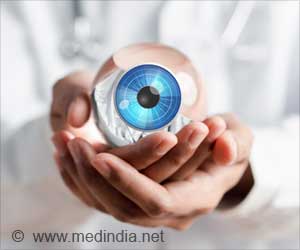A software that can prove helpful in analyzing MRI studies of the brain has been developed by scientists at Massachusetts General Hospital (MGH). They claim that the software cab help in diagnosis of Alzheimer's disease and of mild cognitive impairment.
Writing about their work in the journal Brain, the researchers have revealed that their software program can accurately differentiate patients with mild cognitive impairment or Alzheimer's disease from normal elderly individuals based on anatomic differences in brain structures known to be affected by the disease."Traditionally Alzheimer's has been diagnosed based on a combination of factors - such as a neurologic exam, detailed medical history and written tests of cognitive functioning - with neuroimaging used primarily to rule out other diseases such as stroke or a brain tumor," says Dr. Rahul Desikan, of the Martinos Center and Boston University School of Medicine, lead author of the Brain paper.
"Our findings show the feasibility and importance of using automated, MRI-based neuroanatomic measures as a diagnostic marker for Alzheimer's disease," he added.
The researchers point out that mild cognitive impairment occurs in about 20 percent of elderly individuals, and that 80 percent of them develop Alzheimer's within five or six years.
Given that medications to slow the progression of Alzheimer's are in development, they say that the ability to treat patients in the earliest stages of the disease may significantly delay progression to dementia.
With a view to finding out whether MR imaging could produce diagnostic markers for mild cognitive impairment and Alzheimer's disease, the researchers used FreeSurfer - an openly available imaging software package developed at the Martinos Center and the University of California at San Diego - to examine a number of neuroanatomic regions across a range of normal individuals and patients with mild cognitive impairment and Alzheimer's disease.
Advertisement
The researchers said that the analysis of those images led to the identification of three brain regions where structural differences distinguished the normal controls from participants with mild cognitive impairment with an accuracy of 91 percent.
Advertisement
The research group then analyzed imaging data from 216 individuals in the Alzheimer's Disease Neuroimaging Database to validate the accuracy and assess the reliability of the first-phase observations.
They revealed that 94 of the individuals were normal, 58 who had mild cognitive impairment at the time of imaging and went on to develop dementia, and 65 who had probable Alzheimer's based on their clinical symptoms.
These participants also had a series of neuropsychological tests, and samples of cerebrospinal fluid were available for many of them.
Automated MRI measures of the same three areas identified in the first phase - entorhinal cortex, hippocampus, and supramarginal gyrus - discriminated individuals with mild cognitive impairment from normal elderly controls with 95 percent accuracy, and patients with Alzheimer's were discriminated from normal controls with 100 percent accuracy.
The MRI measures also were significantly correlated with clinical and cognitive tests of dementia, particularly memory decline, and with biomarkers of cellular pathology such as the Alzheimer's-associated forms of the tau and amyloid proteins.
"Our results indicate that these automated MRI measures are one effective way of identifying individuals in the earliest stages of Alzheimer's disease, but before this technology can be used clinically, several follow-up studies need to be done," says Desikan.
Source-ANI
RAS













